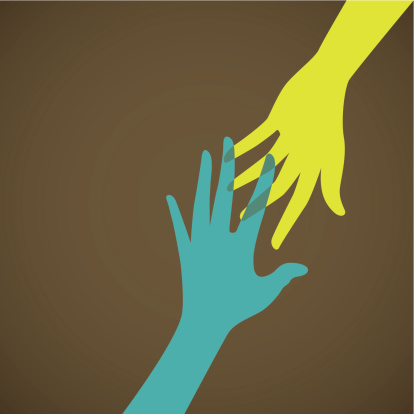I’m sharing this post with my readers because of the simple message of opportunity it carries for anyone facing divorce. If you know of someone about to face divorce, you would be doing him or her a great favor by sharing this article. You will help educate, inform, and provide the opportunity for choice and hope not only for the person you know, but also for their entire family.
This post is reprinted here with permission of Pauline Tesler, a Collaborative colleague who hails from California. Pauline is the co-founder and first president of the International Academy of Collaborative Professionals, frequent lecturer, and trainer.
Divorce as Temporary “Diminished Capacity”
You don’t need to be a lawyer or a psychologist to know that going through a divorce is one of life’s roughest passages. It can cause a myriad of emotional responses that can at times feel overwhelming and limit your ability to think clearly or make good choices. Unfortunately, this occurs at the very time you are called upon to make some of the most important decisions of your life.
For many people, the ending of a marriage is a time of temporary “diminished capacity.” By diminished capacity, we mean a period during which the person you thought you were on your best days—competent, thoughtful, considerate, reasonable, fair-minded, resilient—disappears for days or weeks at a time. The person you generally know yourself to be gets replaced temporarily by an unfamiliar and frightening self who can hardly summon up enough energy to get out of bed, wallows in fear, confusion or anger, or jumps to hasty conclusions in order to end the conflicting impulses about what to do and how to behave.
Recovering from the shock of a failed marriage involves moving through that initial period of diminished capacity, until gradually, more and more of the time, your pre-divorce “best-self” is back at the helm. Most people can expect to feel something like their old, pre-divorce selves in eighteen to twenty-four months from the time of the divorce decree, though it happens more quickly for some and more slowly for many. During that recovery period, it is quite common for people to veer suddenly and dramatically from day to day, or even hour to hour, between optimism and darkest pessimism, between cooperative good humor and frightening rage.
You may be experiencing such intense emotions as you come to terms with the possible—or actual—ending of your marriage. Most people do, at least some of the time. Keeping the focus on best intentions and good decision making in light of that reality is what collaborative divorce is all about.
Thinking clearly about what kind of divorce you want and how you’ll get there may be an unfamiliar concept to you. Most people are surprised to learn that the choices made right at the start of the divorce process have great impact on what kind of a divorce experience they will have. Even when people do understand the high stakes of those early choices, thinking clearly and making intelligent choices at that time can be very challenging, because divorce is an emotional wild ride like no other. Even very reasonable and civilized people can find unexpected, hard-to-manage emotions popping up at the most inconvenient times, particularly during the early months of a separation and divorce—exactly the time when you will be making decisions that determine what kind of divorce you are likely to get, and how your divorce will affect the rest of your life.
When you choose collaborative divorce, a team of professional helpers from the fields of law, psychology, and finance will provide coordinated support and guidance to help you and your partner slow down, reflect, focus on values, aspire to high goals, make good choices, work together constructively while avoiding court, plan for the future, and reach deep resolution. In our experience, this kind of coordinated professional help isn’t available anywhere else but in collaborative divorce. If you choose it, you and your spouse can count on professional advice and counsel that will:
- encourage both of you to remember your goal: the best divorce the two of you are capable of achieving
- educate and remind you about the divorce grief and recovery process so that you can choose to operate from your hopes rather than your fears
- help you focus on the future rather than the past, and on your deepest personal values and goals for the future rather than what the local judge is permitted to order
- make it possible for your financial advice to come from a financial expert, and your parenting advice to come from a child specialist, so that your lawyer is freed to do what lawyers do best: help you reach well-considered resolution
- keep you and your spouse focused on how your children are really doing, and how the two of you can help them move through the divorce with the least possible pain and “collateral damage”
- teach both of you new understanding and skills that will help you be more effective co-parents after the divorce than you may be capable of right now as your marriage ends
- make sure you and your spouse have all the information you’ll need to make wise decisions—not just information about the law, but also about finance, child development, grief and recovery, family systems, negotiating techniques, and anything else that will help you devise creative lasting solutions
- emphasize consensus and real resolution, not horse-trading and quick fixes
- help you maintain maximum privacy, creativity, and self-determination in your divorce.
Divorce is never easy, but making the collaborative choice helps you to move through a challenging life passage with dignity, intelligence, and respect.
[Excerpted and adapted from Introduction and Chapter One of
Collaborative Divorce: The Revolutionary New Way to Restructure Your Family, Resolve Legal Issues, and Move on with Your Life, by Pauline H. Tesler, J.D., and Peggy Thompson, Ph.D.]
To learn more about Collaborative Divorce here in Minnesota check out our website at
www.collaborativelaw.org.
 It was actually my wife’s idea. Lose the clunky stand-alone bookshelf on the second floor landing and build in a bookcase that wraps around the stairwell. Four years ago, her father called a buddy with a sawmill up north. The buddy sold us an oak tree. Then he quarter-sawed it into planks, delivered it to my father-in-law’s shop, and in a matter of months, we had a stack of lumber that was milled to provide tops, bottoms, sides, and shelves of a bookcase. Some assembly required.
“I’ll do the finishing,” I said. “I don’t want this to be a slap-dash job.”
It wasn’t. Weeks turned into months. Months turned into years. The rift and quarter-sawn white oak was sanded. It was filled and sanded again. It was stained. It was varnished. Multiple times. The varnish was sanded down to even it and provide a smooth base for the next coat. And the next. And the next.
“Are you ever going to finish those bookshelves?” my wife asked.
“No sense paying someone to do something I can do myself,” I responded.
This week, as her uncle and I measured, re-measured, plumbed and leveled and trimmed out and touched up the enormous room elephant that this project had become, I shared my frustration with a colleague.
“I swear that’s the last time I volunteer on a home project!” I told him. “It’s not like I couldn’t do it. The finish work is gorgeous, if I do say so myself. But the time! I swear I would have been way ahead of the game if we had just hired someone to begin with.”
“Kind of like a pro se divorce, isn’t it?” he quipped, referring to the 80% of divorces where the couples don’t use any lawyers to assist them.
“As I recall, you don’t do a lot of wood finishing, do ya?”
“Some”
“Ya learned a lot ya didn’t know before, sounds like.”
“The understatement of the year!”
“Like I said, sounds like a pro se divorce! Hey, I know ya got “skills,” but how much time did ya give up, and how much of it did ya have to do over ’cause ya didn’t get it right the first time?”
“Don’t ask!”
It’s not that I don’t know why those 80% try to do it themselves. I get that! Last week I helped a woman who did it herself. She also transferred part of her retirement to her Ex. But she made a mistake and had to do it over. This time, the Ex had a lawyer handle the transfer order. And she had me look it over to be sure it was all in order, which it was.
I probably should have hired you in the first place,” she said when we were done. “Thanks so much!”
It had a familiar ring.
It was actually my wife’s idea. Lose the clunky stand-alone bookshelf on the second floor landing and build in a bookcase that wraps around the stairwell. Four years ago, her father called a buddy with a sawmill up north. The buddy sold us an oak tree. Then he quarter-sawed it into planks, delivered it to my father-in-law’s shop, and in a matter of months, we had a stack of lumber that was milled to provide tops, bottoms, sides, and shelves of a bookcase. Some assembly required.
“I’ll do the finishing,” I said. “I don’t want this to be a slap-dash job.”
It wasn’t. Weeks turned into months. Months turned into years. The rift and quarter-sawn white oak was sanded. It was filled and sanded again. It was stained. It was varnished. Multiple times. The varnish was sanded down to even it and provide a smooth base for the next coat. And the next. And the next.
“Are you ever going to finish those bookshelves?” my wife asked.
“No sense paying someone to do something I can do myself,” I responded.
This week, as her uncle and I measured, re-measured, plumbed and leveled and trimmed out and touched up the enormous room elephant that this project had become, I shared my frustration with a colleague.
“I swear that’s the last time I volunteer on a home project!” I told him. “It’s not like I couldn’t do it. The finish work is gorgeous, if I do say so myself. But the time! I swear I would have been way ahead of the game if we had just hired someone to begin with.”
“Kind of like a pro se divorce, isn’t it?” he quipped, referring to the 80% of divorces where the couples don’t use any lawyers to assist them.
“As I recall, you don’t do a lot of wood finishing, do ya?”
“Some”
“Ya learned a lot ya didn’t know before, sounds like.”
“The understatement of the year!”
“Like I said, sounds like a pro se divorce! Hey, I know ya got “skills,” but how much time did ya give up, and how much of it did ya have to do over ’cause ya didn’t get it right the first time?”
“Don’t ask!”
It’s not that I don’t know why those 80% try to do it themselves. I get that! Last week I helped a woman who did it herself. She also transferred part of her retirement to her Ex. But she made a mistake and had to do it over. This time, the Ex had a lawyer handle the transfer order. And she had me look it over to be sure it was all in order, which it was.
I probably should have hired you in the first place,” she said when we were done. “Thanks so much!”
It had a familiar ring.  It was actually my wife’s idea. Lose the clunky stand-alone bookshelf on the second floor landing and build in a bookcase that wraps around the stairwell. Four years ago, her father called a buddy with a sawmill up north. The buddy sold us an oak tree. Then he quarter-sawed it into planks, delivered it to my father-in-law’s shop, and in a matter of months, we had a stack of lumber that was milled to provide tops, bottoms, sides, and shelves of a bookcase. Some assembly required.
“I’ll do the finishing,” I said. “I don’t want this to be a slap-dash job.”
It wasn’t. Weeks turned into months. Months turned into years. The rift and quarter-sawn white oak was sanded. It was filled and sanded again. It was stained. It was varnished. Multiple times. The varnish was sanded down to even it and provide a smooth base for the next coat. And the next. And the next.
“Are you ever going to finish those bookshelves?” my wife asked.
“No sense paying someone to do something I can do myself,” I responded.
This week, as her uncle and I measured, re-measured, plumbed and leveled and trimmed out and touched up the enormous room elephant that this project had become, I shared my frustration with a colleague.
“I swear that’s the last time I volunteer on a home project!” I told him. “It’s not like I couldn’t do it. The finish work is gorgeous, if I do say so myself. But the time! I swear I would have been way ahead of the game if we had just hired someone to begin with.”
“Kind of like a pro se divorce, isn’t it?” he quipped, referring to the 80% of divorces where the couples don’t use any lawyers to assist them.
“As I recall, you don’t do a lot of wood finishing, do ya?”
“Some”
“Ya learned a lot ya didn’t know before, sounds like.”
“The understatement of the year!”
“Like I said, sounds like a pro se divorce! Hey, I know ya got “skills,” but how much time did ya give up, and how much of it did ya have to do over ’cause ya didn’t get it right the first time?”
“Don’t ask!”
It’s not that I don’t know why those 80% try to do it themselves. I get that! Last week I helped a woman who did it herself. She also transferred part of her retirement to her Ex. But she made a mistake and had to do it over. This time, the Ex had a lawyer handle the transfer order. And she had me look it over to be sure it was all in order, which it was.
I probably should have hired you in the first place,” she said when we were done. “Thanks so much!”
It had a familiar ring.
It was actually my wife’s idea. Lose the clunky stand-alone bookshelf on the second floor landing and build in a bookcase that wraps around the stairwell. Four years ago, her father called a buddy with a sawmill up north. The buddy sold us an oak tree. Then he quarter-sawed it into planks, delivered it to my father-in-law’s shop, and in a matter of months, we had a stack of lumber that was milled to provide tops, bottoms, sides, and shelves of a bookcase. Some assembly required.
“I’ll do the finishing,” I said. “I don’t want this to be a slap-dash job.”
It wasn’t. Weeks turned into months. Months turned into years. The rift and quarter-sawn white oak was sanded. It was filled and sanded again. It was stained. It was varnished. Multiple times. The varnish was sanded down to even it and provide a smooth base for the next coat. And the next. And the next.
“Are you ever going to finish those bookshelves?” my wife asked.
“No sense paying someone to do something I can do myself,” I responded.
This week, as her uncle and I measured, re-measured, plumbed and leveled and trimmed out and touched up the enormous room elephant that this project had become, I shared my frustration with a colleague.
“I swear that’s the last time I volunteer on a home project!” I told him. “It’s not like I couldn’t do it. The finish work is gorgeous, if I do say so myself. But the time! I swear I would have been way ahead of the game if we had just hired someone to begin with.”
“Kind of like a pro se divorce, isn’t it?” he quipped, referring to the 80% of divorces where the couples don’t use any lawyers to assist them.
“As I recall, you don’t do a lot of wood finishing, do ya?”
“Some”
“Ya learned a lot ya didn’t know before, sounds like.”
“The understatement of the year!”
“Like I said, sounds like a pro se divorce! Hey, I know ya got “skills,” but how much time did ya give up, and how much of it did ya have to do over ’cause ya didn’t get it right the first time?”
“Don’t ask!”
It’s not that I don’t know why those 80% try to do it themselves. I get that! Last week I helped a woman who did it herself. She also transferred part of her retirement to her Ex. But she made a mistake and had to do it over. This time, the Ex had a lawyer handle the transfer order. And she had me look it over to be sure it was all in order, which it was.
I probably should have hired you in the first place,” she said when we were done. “Thanks so much!”
It had a familiar ring. 


 Recently I received a referral from Kristin, a client I represented in 2011 in her collaborative divorce. In thanking her for the referral, I took the opportunity to ask her how she was doing. With her permission, her response is reproduced below. At the time of her divorce, Kristin and her husband had two (2) children ages 10 and 12.
Hi Tonda,
Nice to hear from you. I will fill you in with some detail for examples of what can lay on the other side of divorce to help you give hope to your clients going through this painful process. Everyone is doing well here; the kids are doing really well splitting their time between our 2 households (4 miles apart).
Tom and I have a much better relationship now than when we were getting divorced. We talk several times per week and text, usually daily, mostly regarding kids’ stuff like coordinating activities/homework and just general parenting issues. We also try to meet for coffee sometimes to discuss things more in depth like holidays and vacation planning and kids’ milestones. We see each other at their basketball games, tennis matches, orchestra concerts, etc, even holidays sometimes, and usually sit together with our new spouses. Tom and I both got re-married a couple of months ago and Tom and his wife are expecting a baby in March. I married a pharmacist that I met after the divorce and we got married in Yosemite in August of this year. The four of us get along well and the kids get along well with both our spouses so I have nothing but great things to say about the collaborative process. It really helped us to avoid a lot of un-pleasantries and keep our family together without staying married, which is really great.
I hope all is well with you and your practice. I will continue to recommend people look into collaborative divorce as an option. It has been very helpful to us to use the divorce agreement as a structure, but we stay very flexible with rearranging schedules, holidays and vacations etc. We have actually never even had an argument since the divorce. It has helped us build a sense of cooperation and the
Recently I received a referral from Kristin, a client I represented in 2011 in her collaborative divorce. In thanking her for the referral, I took the opportunity to ask her how she was doing. With her permission, her response is reproduced below. At the time of her divorce, Kristin and her husband had two (2) children ages 10 and 12.
Hi Tonda,
Nice to hear from you. I will fill you in with some detail for examples of what can lay on the other side of divorce to help you give hope to your clients going through this painful process. Everyone is doing well here; the kids are doing really well splitting their time between our 2 households (4 miles apart).
Tom and I have a much better relationship now than when we were getting divorced. We talk several times per week and text, usually daily, mostly regarding kids’ stuff like coordinating activities/homework and just general parenting issues. We also try to meet for coffee sometimes to discuss things more in depth like holidays and vacation planning and kids’ milestones. We see each other at their basketball games, tennis matches, orchestra concerts, etc, even holidays sometimes, and usually sit together with our new spouses. Tom and I both got re-married a couple of months ago and Tom and his wife are expecting a baby in March. I married a pharmacist that I met after the divorce and we got married in Yosemite in August of this year. The four of us get along well and the kids get along well with both our spouses so I have nothing but great things to say about the collaborative process. It really helped us to avoid a lot of un-pleasantries and keep our family together without staying married, which is really great.
I hope all is well with you and your practice. I will continue to recommend people look into collaborative divorce as an option. It has been very helpful to us to use the divorce agreement as a structure, but we stay very flexible with rearranging schedules, holidays and vacations etc. We have actually never even had an argument since the divorce. It has helped us build a sense of cooperation and the 

